Nigerian cuisine is a treasure trove of flavours, offering an exciting array of dishes that are as diverse as its people. Typical Nigerian dishes are spicy with staples such as rice, yams, cassava, and plantains. These staples are often ground into flours or pounded into dough-like textures for soups and stews. Each region of Nigeria brings its unique ingredients and cooking methods to the table, creating a rich culinary landscape for food enthusiasts to explore.
Jollof Rice
No discussion of Nigerian food would be complete without mentioning Jollof Rice. This beloved dish is a staple at celebrations and a fierce point of pride in its regional variations across West Africa. Made with rice, tomatoes, onion, and a blend of spices, it’s often accompanied by vegetables, fish, or meat. Each spoonful of Jollof Rice bursts with flavours that are both comforting and invigorating, embodying the spirit of Nigerian hospitality and joy.
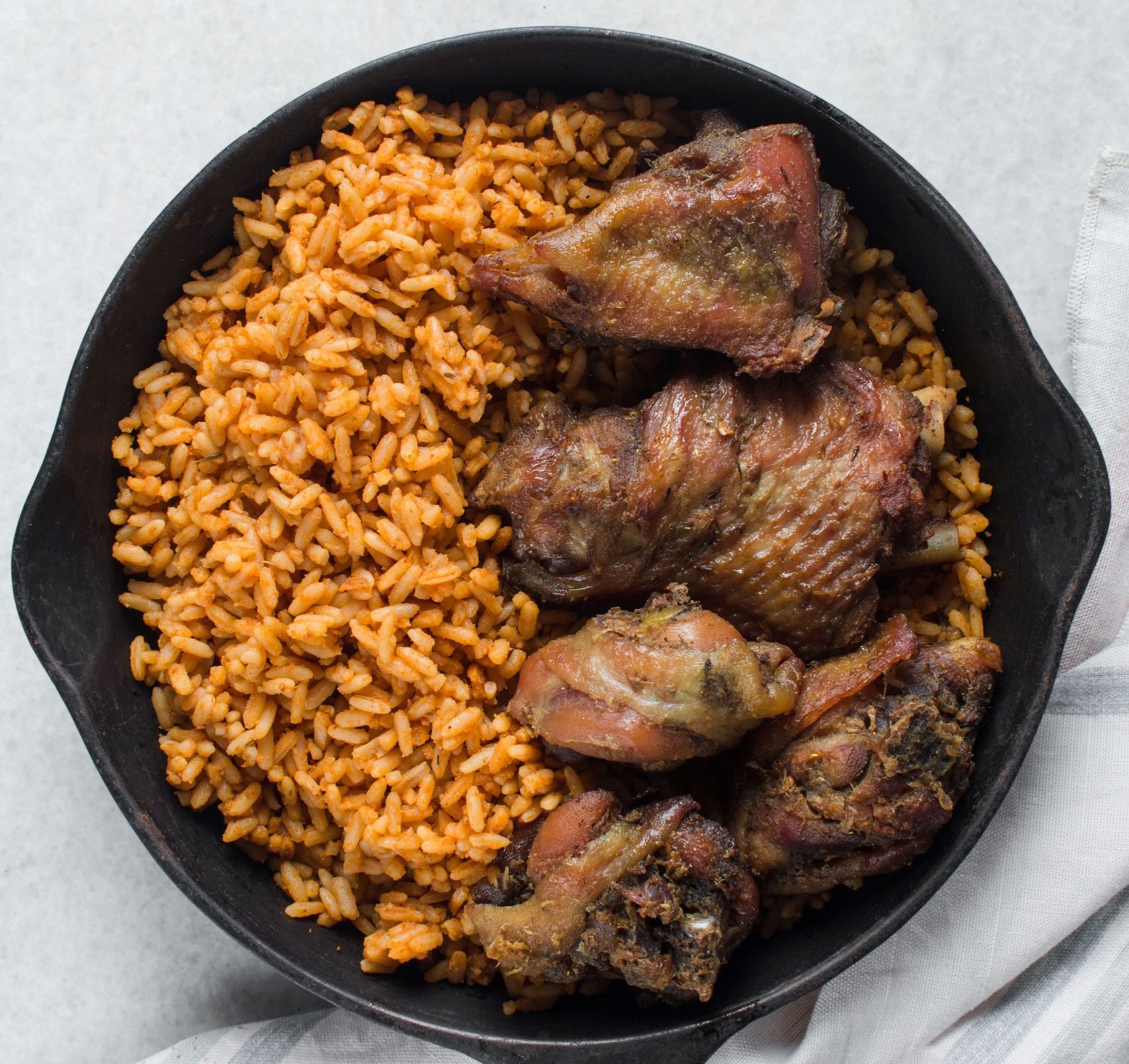
Pounded Yam and Egusi Soup
Pounded Yam, paired with Egusi Soup, is another classic that you can’t miss. Pounded Yam is smooth and stretchy, made from yam that has been boiled and pounded until it reaches a dough-like consistency. It serves as the perfect vehicle for Egusi Soup, which is made from melon seeds, greens, seasoned meat, and fish. This dish is not only a delight for the taste buds but also a hearty meal that reflects the Nigerian ethos of communal dining and sharing.
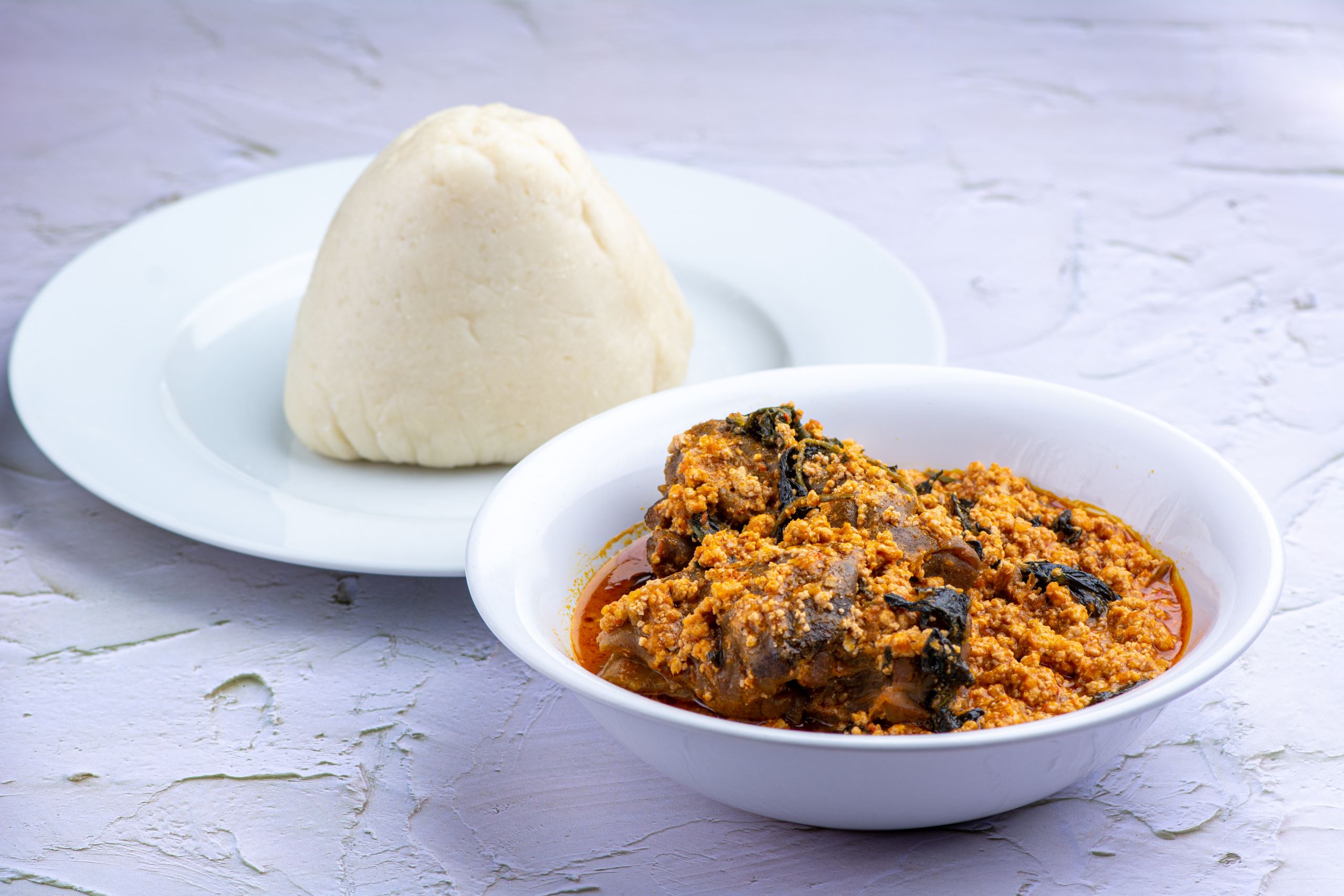
Suya
If you ever walk the streets of any Nigerian city in the evening, you’ll likely encounter the irresistible aroma of Suya. Suya is skewered meat coated in a spicy peanut blend, grilled to perfection. It’s a popular street food that offers a quick, delicious, and affordable way to satisfy hunger pangs while providing a taste of Nigerian fast-food culture. Suya spots become social hubs where people of all ages gather to enjoy a tasty snack and lively conversation.
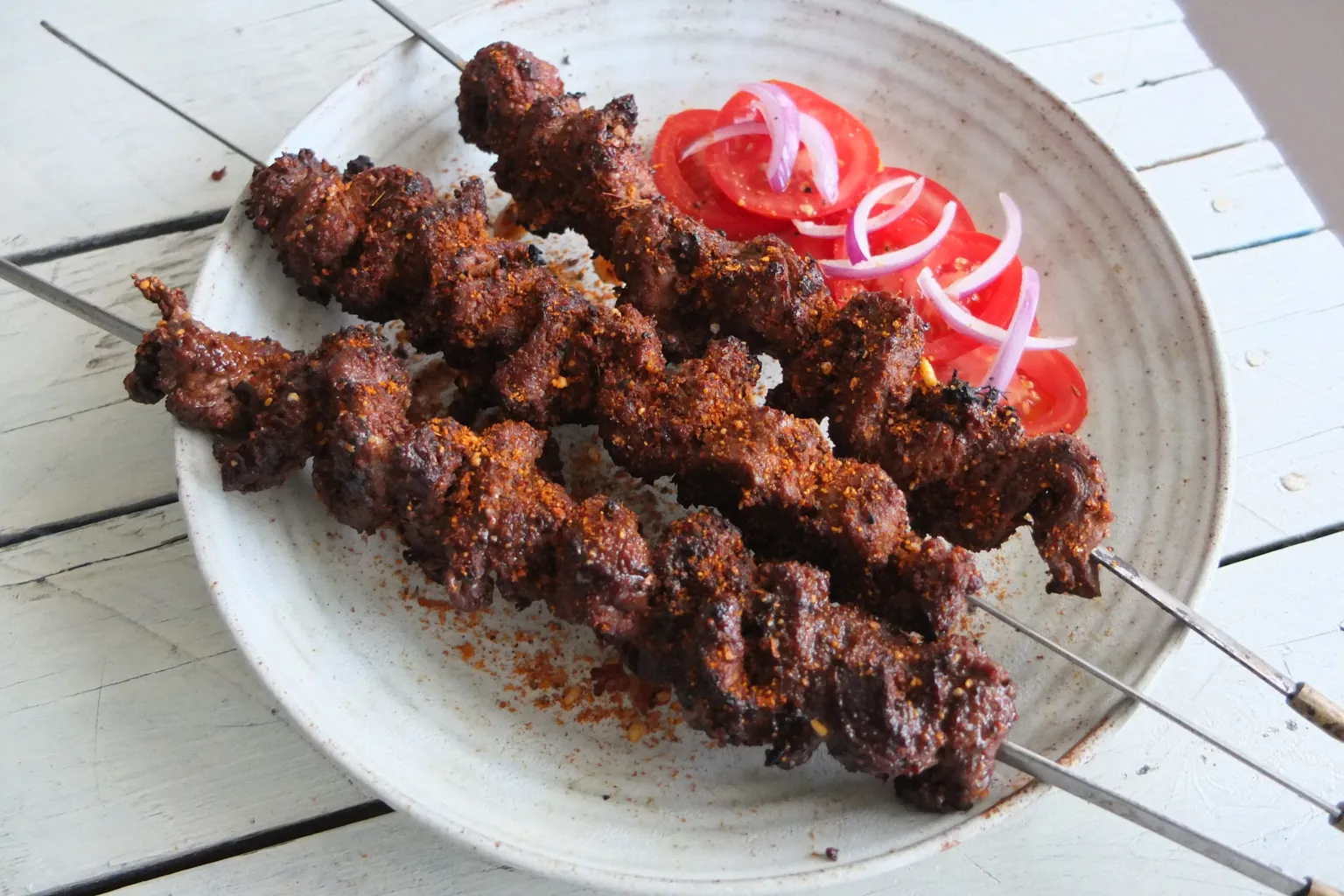
Akara
Akara, or bean cakes, are a breakfast favourite in Nigeria. Made from pureed beans mixed with onions and spices, these balls are deep-fried until they are golden brown. Akara can be enjoyed alone, dipped in a spicy sauce, or sandwiched in bread to make a filling breakfast burger. They are not only delicious but also packed with protein, making them a healthy start to the day.
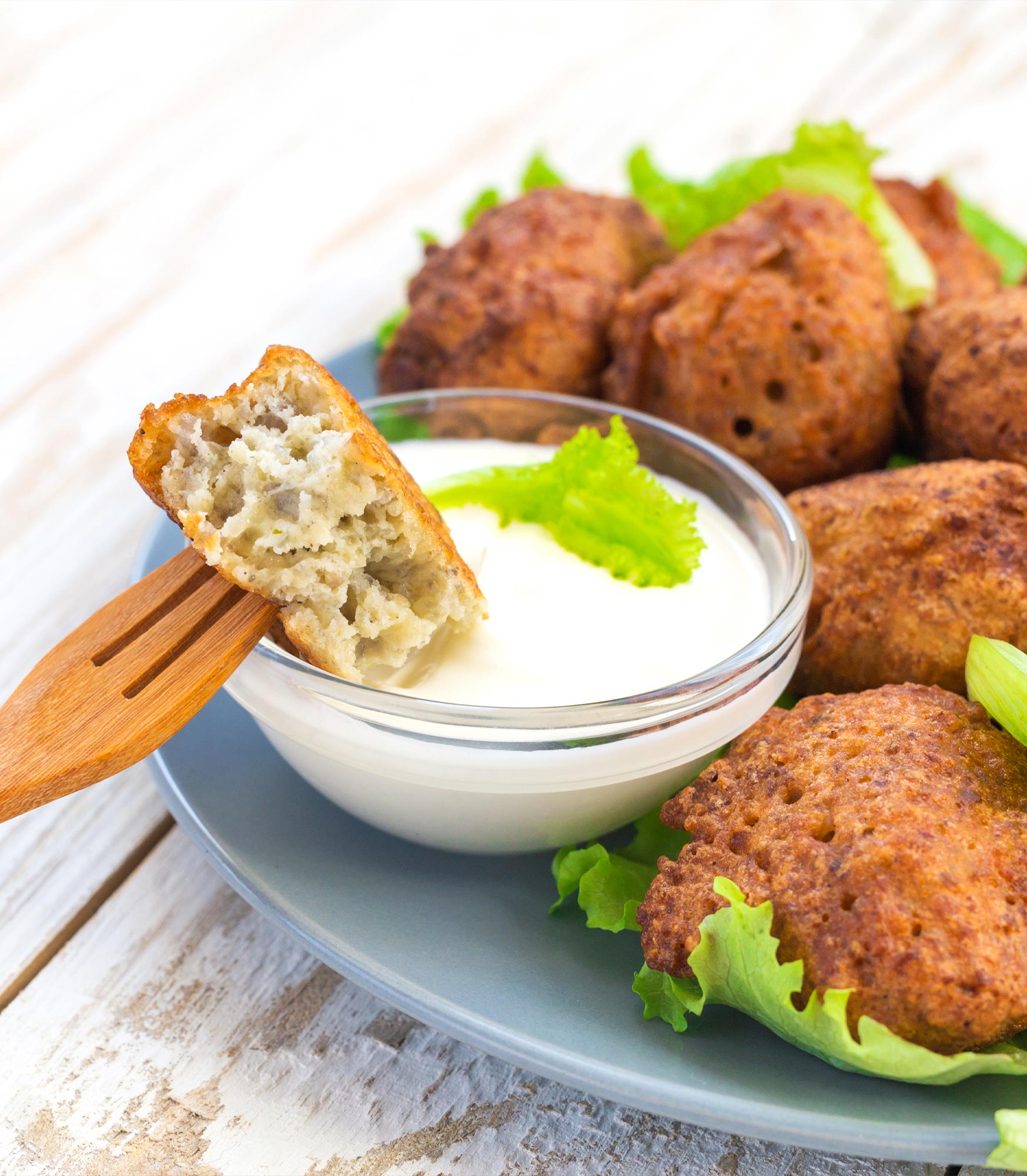
Bitterleaf Soup
For those with adventurous palates, Bitterleaf Soup offers a unique taste experience. Despite its name, the bitterness is mild and balanced with ingredients like meat, fish, and sometimes snails, thickened with ground seeds. This soup is often touted for its health benefits, including aiding digestion and improving metabolism.
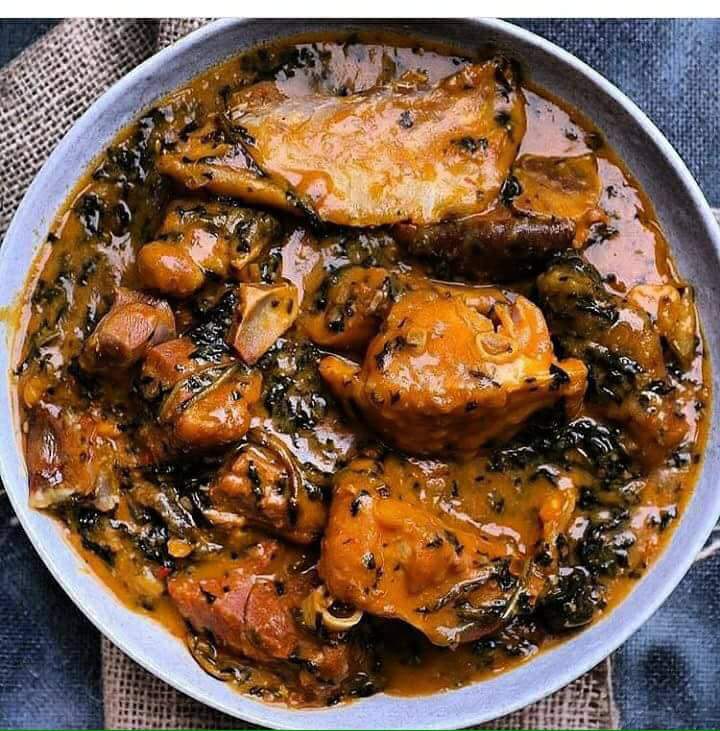
Cultural Significance
Nigerian cuisine is deeply rooted in tradition yet dynamic in its adaptation to contemporary tastes and global influences. Each dish tells a story of cultural heritage, regional resources, and family traditions passed down through generations. Whether you’re enjoying a plate of Jollof Rice at a lively wedding party, savouring Pounded Yam and Egusi Soup at a family gathering, or grabbing some Suya from a street vendor, you’re experiencing more than just food. You’re partaking in a rich cultural exchange that is central to Nigerian life.
Nigeria’s culinary offerings are vast and varied, and the dishes mentioned here are just the beginning. For travellers and locals alike, exploring Nigerian cuisine is an adventure in flavours that are as vibrant and diverse as Nigeria itself. So next time you’re in the mood for something uniquely delicious, consider diving into the world of Nigerian dishes – your taste buds will thank you!
This exploration of Nigerian cuisine highlights its rich flavours and cultural significance, providing a delicious entry point for those unfamiliar with West Africa’s culinary diversity. Whether you’re a food lover or a curious traveller, Nigerian dishes offer a delightful experience that is not to be missed.

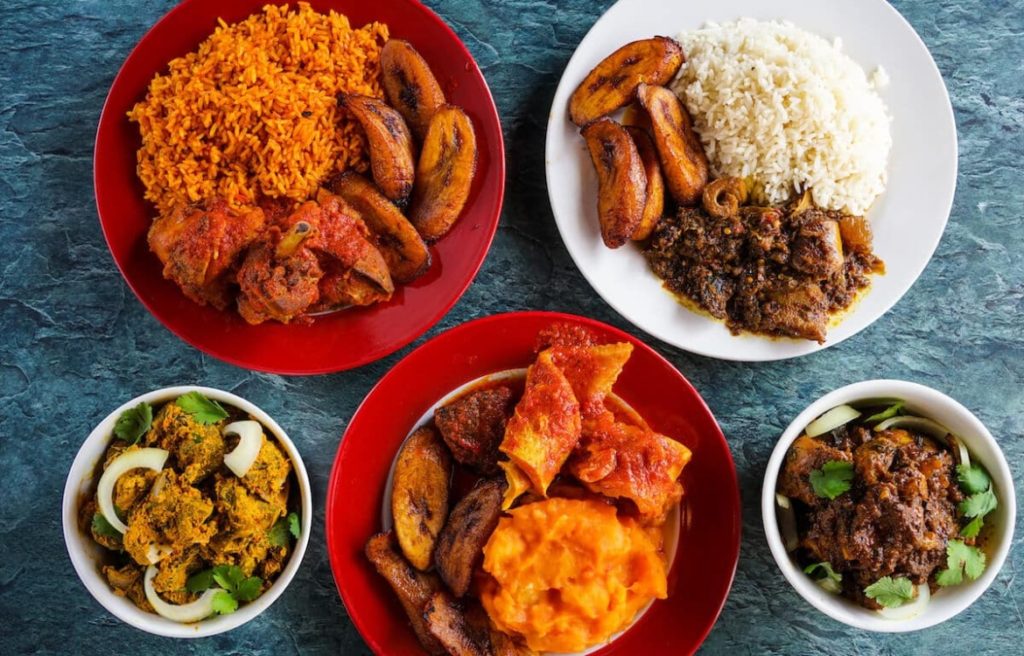

1 Comment
An impressive share! I have just forwarded this onto a coworker who was doing
a little research on this. And he actually bought me dinner because I stumbled upon it for him…
lol. So allow me to reword this…. Thanks for the meal!!
But yeah, thanx for spending the time to discuss this subject here on your blog.